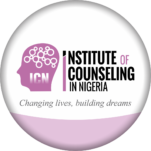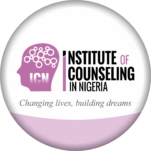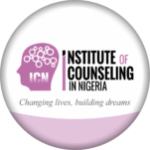Did you know that mental health is not just the absence of psychological disorders? Well, to know what mental health is, it is important to know what constitutes health as a whole. The World Health Organization defines health as “the state of complete physical, mental and social well-being and not merely the absence of disease or infirmity”. There are three areas contained in this definition which are physical health, social well-being, and mental well-being. The absence of any of these would mean no wholeness. This implies that a person can only be regarded as healthy only when all three constituents of health are present.
What then is mental health? Mental health is a state of wellness that enables a person to manage daily stress, engage in productive activities, and the actualization of one’s potential. Until you are in this state, you are yet to be mentally healthy. Even though the body and the mind are often seen as distinct entities, there is, however, a close relationship between the two. For example, research has linked depression to cardiovascular disease, diabetes, arthritis, and cancer. Poor mental health can lead to sleep and feeding problems as well. While being mentally sound would lessen the risk of some of these illnesses, poor mental health could increase the chances of developing them. Poor physical health affects one’s ability to earn a living and enjoy the good things of life.
Recognizing the role of mental health in our daily function and wholeness made the former Director-General of The World Health Organization (WHO), Dr. Brock Chisholm, make the famous statement “without mental health, there can be no true physical health”. This brings to mind, the popular saying “your health is your wealth”. Since there is no health without mental health, your mind is therefore your wealth.
There are several things you can do to ensure your mental health. Some of them are:
- Exercise: The importance of exercise in boosting your mental health can never be overstated. Exercise does not only affect your physical body but also your mind. And there is supporting evidence to that. The fact is, to get your body and mind stimulated, you do not have to use the whole day doing that. And you don’t necessarily have to go on the streets or spend money on some expensive kits. You could download some helpful apps to your mobile device to aid you. About 15 to 30 minutes of daily exercise right in your room is enough to get your body activated and boost your mental health.
- Proper diet: Giving attention to what you eat and how you eat is very important in maintaining your mental health. Recent finding attests to this position, suggesting that certain types of food such as “sweetened beverages, processed/ junk food, and foods rich in saturated fatty acids, along with low consumption of fruits and vegetables” have adverse effects on mental health. Whereas food “rich in complex carbohydrates, omega-3 fatty acids, B-group vitamins, and several amino acids” tend to enhance one’s mental health. In case you don’t know where to start, you could talk to a dietician.
- Stay in touch with others: Staying connected with your family and other important people can positively impact your mental health. Connecting with significant people in one’s life has been shown to foster self-esteem and the feeling of belonging. Therefore, as much as it is within your reach, create time daily to be with significant people in your life. Dinner time is one of such awesome times.
- Make out time to have good sleep: Good sleep is an essential habit that can enhance your mental health. Repeated studies have demonstrated the importance of sleep in boosting the immune system and the lack of it could heighten the risk of contracting infections, flu, and other illnesses. To guard against these, it is important to make out time to sleep, usually 7- 9 hours per night for an adult.
- Stay away from substances: alcohol and other drugs have overwhelming adverse effects on one’s physical and mental health. These effects could range from sleep problems, lack of concentration, anxiety, depression, and even death. Therefore, stay away from substances to keep your mental health sound.
- Get prompt help: Seeking prompt professional help whenever you are experiencing mental health challenge is essential to keeping yourself mentally sound. When you have trouble with sleep, changes in appetite and weight, extremely low mood, trouble with concentration, loss of interest and pleasure in previously enjoyed activities, and impaired functioning in daily activities; lasting over two weeks necessitate that you see a mental health expert. Just in case you don’t know where to begin, you could contact the institute of counseling in Nigeria for free help: www.instituteofcounseling.org or call our 24/7 hotline +2348188783527
Living a productive life demands ensuring your mental well-being. Achieving that involves deliberate actions and not just a mere wish. The points discussed above could be used as a starting point to ensure your mental health. Remember that “there is no health without mental health” and your mind is your wealth.


